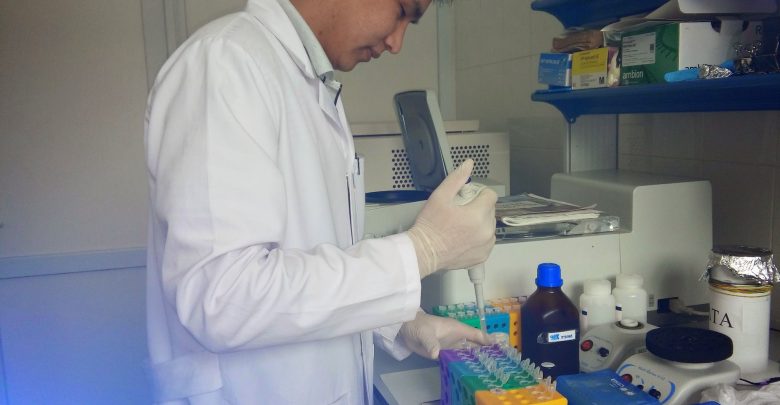Investigation of the relationship of miRNA with target genes and the level of their expression in oncopathology

Scientists of the laboratory of structural and functional genomics of the M. Aitkhozhin Institute of Molecular Biology and Biochemistry, under the supervision of academician NAS of RK N.A. Aitkhozhina and the head of the laboratory E.E. Ashirbekov, has conducted studies on the possibility of using microRNA as biomarkers for breast cancer (BC) diagnosis in Kazakh women. MicroRNAs are small RNA molecules that play an important role in the human body as regulators of the activity of most genes. In many pathologies, there is a specific change in the normal amount of microRNAs in tissues, blood, urine, etc. The shift in the concentrations of certain microRNAs can be detected and, thus, the disease can be diagnosed.
The most effective measure to fight cancer is the early detection of malignant tissue degeneration, when the disease is still treatable. The introduction of mammographic screening for women of high-risk age has significantly increased the percentage of early detection of breast cancer and, accordingly, reduced the mortality of patients. However, mammography has a significant number of false positive results in women at a younger age – up to 60% between 40 and 50 years, and as statistics show, in Kazakh women this disease is detected at a younger age – the average age of Kazakh patients is about 50 years, in Europe this figure is around 60 years. Therefore, the search and development of new methods of early diagnosis of breast cancer are very relevant.
As a result of the studies, two microRNAs were found that allow us to distinguish with high accuracy patients with breast cancer in the early stages from healthy women. One of the main advantages of the proposed diagnostic method is its low invasiveness, i.e. it is enough to take the venous blood of the subject for analysis. Another feature is the simplicity of the technique and the high stability of microRNAs in blood plasma.
Further research, including clinical studies, is needed to validate the results of the research and introduce new microRNAs-based biomarkers into clinical practice.
 Каз
Каз Рус
Рус Eng
Eng